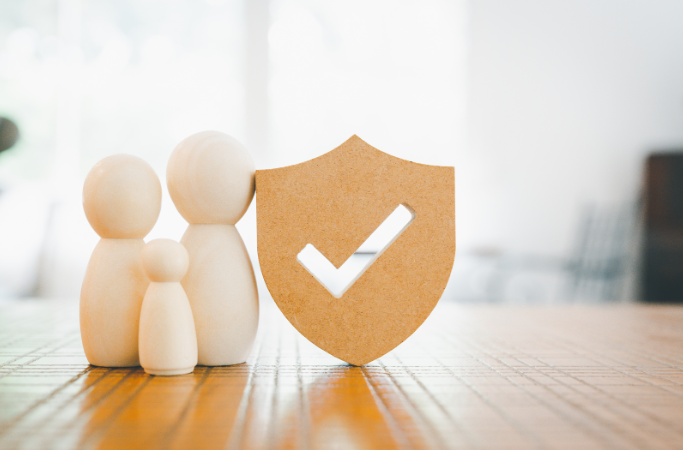Relocating to a new country is an exciting journey, filled with opportunities for personal and professional growth. However, safety and security should always be a top priority for expats. Whether moving for work, business, or personal reasons, understanding potential risks and preparing for them can ensure a smooth and secure transition. This guide covers crime prevention, scams, emergency preparedness, political stability, natural disasters, and the role of relocation experts in crisis management.
Crime, Scams, and Emergency Preparedness
Like in any country, expats can be targets of crime. Although not extremely common, crimes such as pickpocketing, bag-snatching, and credit card fraud can occur, especially in crowded places or locations with a high concentration of tourists and foreigners. Being mindful of your surroundings, avoiding the display of valuable items, and using secure transportation can significantly reduce risks.
Beyond crime, scams can be a problem for new arrivals unfamiliar with the local culture. A common scam involves receiving a phone call from someone claiming to be from a hospital, stating that a loved one has been in an accident and urgently needs money for treatment. Another frequent scam involves a caller claiming to be from your bank, requesting sensitive information such as your ATM PIN or one-time password (OTP). Under no circumstances should you disclose personal information to an unknown caller.
Being prepared for emergencies is equally crucial. This is a conversation that you should have with your children as well as your domestic staff to ensure they know what to do if an emergency occurs when you are not at home. Knowing local emergency numbers, identifying the nearest hospital, and keeping essential documents in an accessible place are basic steps every expat should take. Having an emergency contact—whether a colleague, friend, or local contact—who is aware of your whereabouts can also be beneficial in case of an unexpected situation. Additionally, understanding how to ask for help in the local language can be life-saving in urgent situations.
You should also brief your household staff on what type of information they should disclose when you are not home. If you are going away for an extended period, such as on home leave, instruct them not to volunteer information about your return date to outsiders. Additionally, make it clear that no one should be allowed to enter your home without notifying you first and verifying the visitor’s identity, especially if you are away.
Fire safety is another important concern. Fire extinguishers should be present in the home and checked regularly for their expiration date. Your staff should be trained on how to use them, and everyone in the family should be aware of at least two escape routes from the home. Having discussions with children about what they should do in case of an emergency can be life-saving.
Pool safety is particularly critical for families with young children. In Indonesia, where many expatriate homes and residential compounds feature private swimming pools, ensuring a safe environment is essential. Drowning accidents can happen quickly and silently, making preventive measures a priority. Unlike in some Western countries where strict pool safety regulations are in place, private pools in Indonesia often lack mandatory safety features. Homeowners and tenants should take responsibility for installing pool fences, self-latching gates, and ensuring constant supervision of children near water.
Political Stability and Natural Disasters
Political stability varies from country to country, and even the most peaceful nations can experience unexpected events. In Indonesia, protests, strikes, and civil unrest may not always pose direct threats to expats, but they can disrupt daily life—particularly traffic. Staying informed through local news, embassy updates, security service subscriptions, and social media alerts can help expats avoid high-risk areas and make informed decisions about their movements. Registering with their home country’s embassy also provides an added layer of security, ensuring they receive timely updates in case of political disturbances.
Natural disasters are another factor that can affect expats in Indonesia. Depending on the region, risks may include earthquakes, floods, typhoons, or volcanic eruptions. One of the first questions to ask when choosing a home is whether the area is prone to flooding. Even if your house is in a safe zone, nearby roads could be affected, making commuting difficult. Identifying alternative routes, keeping a supply of essentials like bottled water and flashlights, and securing insurance that covers disaster-related incidents are practical steps for ensuring personal safety. Although landlords may have insurance on the property, your personal belongings are likely not covered, so it may be worth considering home contents insurance for valuable items.
In some areas, air pollution can be extreme. Some families request that air purifiers be installed in their homes to improve indoor air quality and protect their health.
Security in Public Places
In Indonesia, particularly in Jakarta, security checks have become standard practice when entering public places such as shopping malls, office buildings, and hotels. Most malls and commercial centers require vehicles to pass through a brief security screening before being allowed entry. Security personnel may inspect the trunk and underside of the car, though in many cases, these checks appear to be more of a routine formality rather than a thorough inspection. These measures were introduced following the bombing incidents in Jakarta in 2004, when attacks on public places raised widespread safety concerns. As a result, malls and office buildings implemented security screenings, including bag checks and metal detectors, to reassure the public and prevent potential future attacks.
While these precautions remain in place today, their effectiveness has significantly diminished over time. Bag checks at mall entrances, for example, often consist of a quick glance inside rather than a detailed inspection. Security guards may wave metal detectors around without always paying close attention, and many people walk through without being properly screened.
To enter office buildings, visitors are typically required to check in at the reception desk, exchange an ID, provide details about their destination, and state the purpose of their visit. While these steps were initially enforced with great diligence, they have become somewhat lax over time. In many cases, receptionists and security personnel now conduct these procedures in a more relaxed manner. Although these measures may no longer be as stringent as they once were, they continue to serve as a deterrent and a reminder of past threats, maintaining at least a basic level of security awareness in public spaces.
Generally speaking, Indonesia is a safe place for expats if they take precautions similar to those necessary in any large city. Women should be mindful of their purses, keeping them close to their bodies in public and not hanging them over the back of a chair in restaurants. When dining out, avoid leaving personal items unattended on the table. Additionally, avoid displaying large amounts of cash in public or wearing overly expensive jewelry that might attract attention.
Violent Crimes and Gun Control
Gun control in Indonesia is among the strictest in the world, making personal firearm ownership extremely rare. Unlike countries such as the United States, where private citizens can legally own guns under certain regulations, Indonesia has stringent laws that heavily restrict access to firearms. Only select individuals, such as military personnel, police officers, and certain licensed security personnel, are permitted to carry guns, and even then, strict oversight is enforced. As a result, violent crimes involving firearms are highly uncommon in Indonesia. While crimes such as theft, scams, and pickpocketing do occur, gun-related violence is far less frequent than in countries where personal gun ownership is widespread. This strict regulation has contributed to a relatively low incidence of mass shootings or armed robberies, which are more commonly reported in nations with more permissive gun laws.
Final Thoughts: Staying Safe as an Expat
Moving to a new country comes with its share of challenges, but safety and security should never be compromised. By staying informed about crime risks, scams, and emergency procedures, expats can protect themselves from potential threats. Understanding the political climate and environmental hazards of their host country allows them to take necessary precautions and respond effectively to unforeseen events.
For those planning a move, taking proactive steps in security planning is essential. Whether it’s securing insurance or consulting with relocation specialists, these measures contribute to a more secure and stress-free relocation. By prioritizing safety, expats can focus on making the most of their new adventure while minimizing potential risks.




